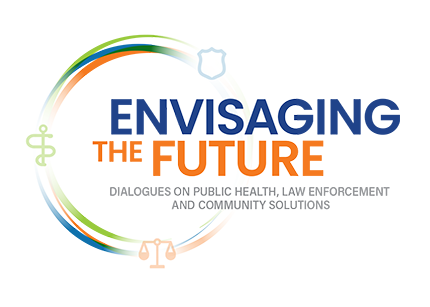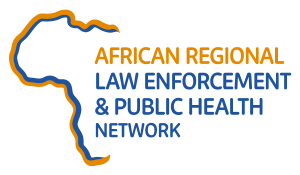
Compiled by Munya Katumba, Co-ordinator, African LEPH Network
One hundred and thirty nine (139) delegates from 25 countries converged in Pretoria, South Africa to attend the Africa Regional Conference on Law Enforcement and Public Health in Africa (ALEPH2024) from December 1 – 4, 2024 at the University of Pretoria. The countries represented were Australia, Austria, Bangladesh, Botswana, Brazil, Burkina Faso, Burundi, Canada, Eswatini, Ethiopia, India, Kenya, Malawi, Mozambique, Nigeria, South Africa, Sri Lanka, St Helena Island, Sweden, Trinidad and Tobago, Uganda, United Kingdom, United State of America, Zambia and Zimbabwe.
The conference theme was Aligning Policing and Public Health: working together for community wellbeing (De)criminalizing public health. The conference was convened by Faculty of the Health Sciences University of Pretoria. The Global Law Enforcement and Public Health Association in collaboration with African Policing Civilian Oversight Forum were the conference co-conveners and supported by Secure Communities Forum, United Nations Office on Drugs and Crime (UNODC) and Stitching Aidsfonds (Love Alliance and Hands Off programmes).
The ALEPH2024 was successful as the conference brought together individual experts and organisations involved in the complex and diverse intersections of law enforcement and public health in Africa that included police, public health practitioners, judges, community and activists, policy makers and researchers from across many disciplines. The ALEPH 2024 conference proved that if practitioners, policymakers and academics are brought together in this emerging field to explore the nature of the myriad interactions between police and public health, learning does take place on how better to work together to achieve the best safety and wellbeing for the whole community.
The conference raised awareness on the important links between the law enforcement and public health sectors in addressing a broad range of complex issues such as violence prevention: gender-based, family, sexual, intimate partner; including firearm proliferation, human trafficking and modern slavery. Awareness was raised on public health approaches, including public health policing, to public health issues in Africa currently criminalized or over-policed. The ALEPH2024 shared current research and state-of-the-art practice globally addressing issues of public health policing: responding to mental health crises, illicit drug use, alcohol-related issues and harm reduction. Experiences were shared on partnership approaches to the widest range of important public health and welfare issues in Africa that included crises and catastrophes: responses and preparedness especially on pandemic preparedness; Corrections and detention: prisons and places of detention/deportation as public health Institutions; Wellness and resilience of police and other first responders; Challenging the criminalization of communities and public health issues such as poverty, homelessness, HIV transmission, LGBTIQ+, abortion, sex work and reproductive justice issues. The limelight was also launching the African LEPH network at the end of the end of the conference as an affiliated member of the Global Law Enforcement and Public Health Association.
The conference was rated average (3%), Good (51%) and Excellent (46%) by the conference attendees who responded to the conference evaluation survey. The survey respondents felt the ALEPH2024 conference subjects of discussion were very valuable because they learnt something new, the discussions were fresh, kept alive and engaging. The diverse presentations with intersectional topics were relevant across Africa although some felt there was a repetition on harm reduction topics. The law enforcement and public health tools and guidelines shared are valuable and useful for their daily work for example the Dignity, Diversity and Policing programme. The surveyrespondents felt the conference programme provided opportunities for communication and networking (especially the cocktail events) with others because delegates networked with diverse experts from varying backgrounds, countries and working from different LEPH departments although others felt some sessions did not provide enough time for interactions. Participants gained new well researched, relevant, realistic and practical knowledge and also on rural programmes and key populations which in most conferences is not always covered. Further general comments indicated that the conference was well organised, wonderful, impactful, life changing experience, participants were kept encouraged and excited to the end. Concurrent sessions with equally important topics to choose from was reported to be a challenge.
Overall, the ALEPH 2024 received good feedback as well organised with the attendees valuing the discussions, programme format and networking opportunities. The feedback also highlighted areas of improvement, such as increasing interactivity and providing more time for questions and discussions. The organisers should in the future seriously consider the strategic importance of involving religious leaders in order to close the gap on addressing stigma, discrimination, harmful cultural practices and norms.
Home takeaways/Lessons
The closing ceremony session shared lessons from the conference such as:
3. Policing and the justice system should be fundamentally positioned as primary mechanisms for promoting and protecting human rights, ensuring consistent adherence to the rule of law.






